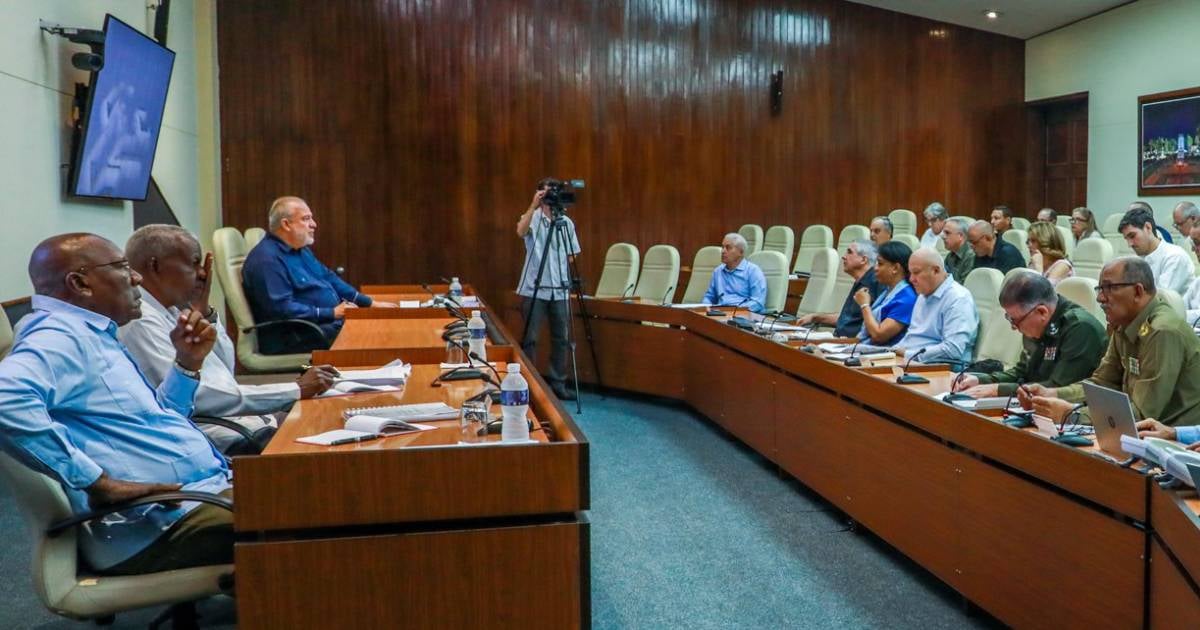In a special session led by Prime Minister Manuel Marrero Cruz, Cuba's Council of Ministers has endorsed four draft bills poised to influence various social sectors across the nation. These proposals aim to address child protection, modernize the Civil Registry, reform the sports system, and establish a new framework for administrative violations, as reported by the Cuban Presidency's official website. While these legislative initiatives are promoted as progressive, their actual impact will hinge upon both their execution and public reception.
What Are the Proposed Laws?
Code for Children, Adolescents, and Youth: This draft seeks to ensure the comprehensive development of children, adolescents, and young people, advocating for their full rights. Education Minister Naima Ariatne Trujillo Barreto noted that the code is the culmination of an extensive consultation process involving key social actors. Designed to be inclusive and representative, the code aims to foster participation and social development among the younger population. However, questions arise regarding its effective implementation given the historical challenges in public youth policies. How will it truly protect rights in a society grappling with structural and economic hurdles?
Civil Registry Law
Justice Minister Oscar Silvera Martínez emphasized that this law intends to modernize the Civil Registry, digitize its operations, and strengthen its institutional framework. It also introduces a specific disciplinary regime for civil registrars to address the current legislative inconsistencies. While the project suggests significant improvements in document management and personal data handling, concerns persist about its feasibility in a country facing technological infrastructure challenges. Can digitalization be assured across all provinces?
General Law of Administrative Violations and Sanctions
This proposal aims to consolidate and clarify Cuba's administrative sanctioning system. Oscar Silvera pointed out that current normative dispersions complicate the understanding of infractions and their repercussions. This new law aspires to be a comprehensive tool for handling violations. Nevertheless, its approval raises alarms about its potential use as a social control mechanism in Cuba's authoritarian context. Does it ensure fair treatment, or could it lead to more punitive measures against civilians?
Cuban Sports System Law
According to Osvaldo Vento Montiller, president of the National Institute of Sports, Physical Education, and Recreation (INDER), this is the first law of its kind in Cuba. It aims to establish a legal framework for sports, aligning with the revolutionary ideals of the nation's sports system. Despite its inclusive and transparent approach, there remains skepticism about whether this law can revive Cuba's sports legacy amid economic crisis and the exodus of elite athletes. Is a modern law enough to reverse the decline in Cuban sports?
Real Changes or Symbolic Reforms?
Although these four draft bills have been presented as substantial advancements, the Cuban social and political landscape demands a critical view of their true impact. Approving laws alone does not ensure effective transformation within the country.
On one hand, legal updates can help modernize certain areas of the Cuban social system, such as sports and the civil registry. However, material limitations, technological access, and state control could hinder their effective implementation.
On the other hand, the Law on Administrative Violations raises concerns about its potential use to reinforce social control in a context where recent protests have been met with repressive measures.
Similarly, while the Children's Code aims to secure fundamental rights, its success will largely depend on political will and institutional support. Ultimately, the next steps will reveal whether these legislative proposals are mere expressions of goodwill or genuine advancements for Cuban society.
Civilians and affected sectors will be closely watching how these laws manifest in everyday life amid ongoing demands for greater transparency and participation in the legislative process.
Insights on Cuba's New Legislative Proposals
What areas do the new Cuban draft bills aim to impact?
The draft bills aim to address child protection, modernize the Civil Registry, reform the sports system, and regulate administrative violations.
What are the concerns surrounding the implementation of these laws?
Concerns include the technological and infrastructural limitations for implementing the Civil Registry law, potential misuse of the administrative sanctions law for social control, and the practical impact of the Children's Code amid economic challenges.
How might the new sports law affect Cuban athletics?
The new sports law aims to establish a comprehensive legal framework for sports, but there are doubts about its effectiveness in reviving Cuba's sports legacy during an economic downturn and athlete migration.
